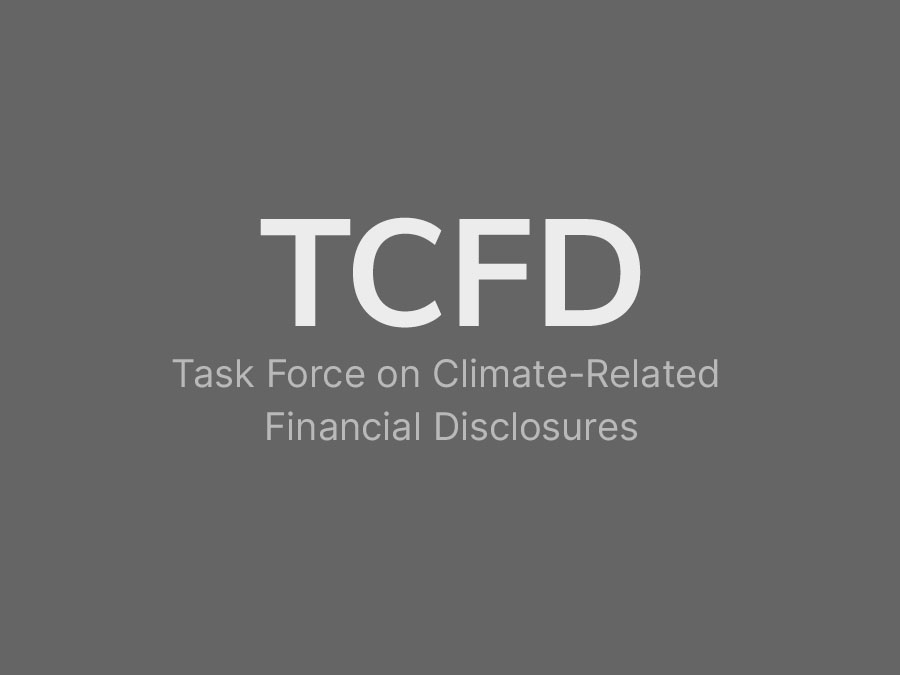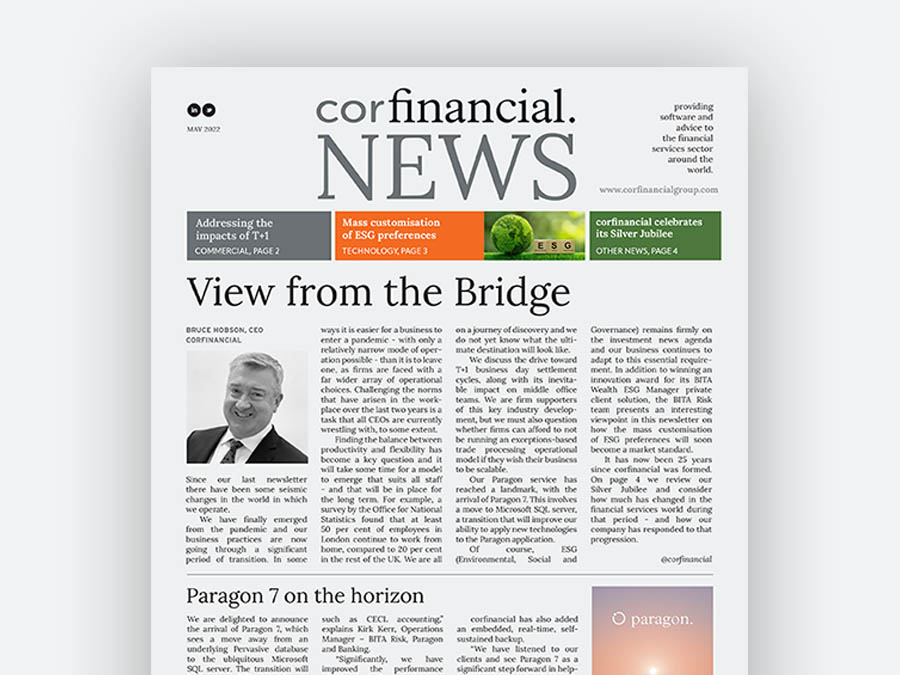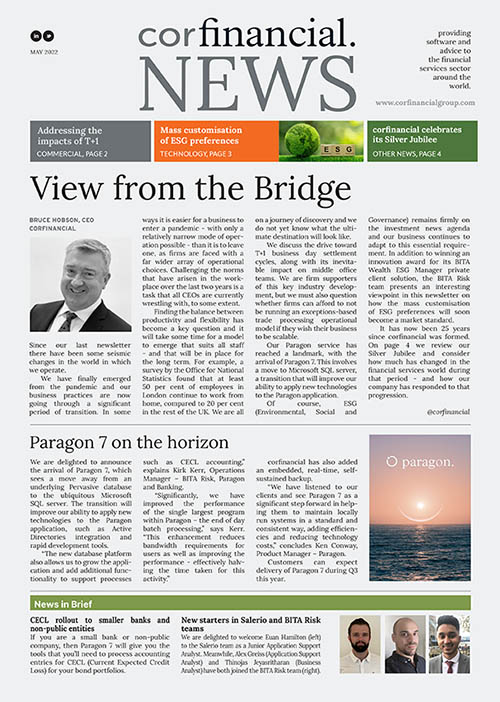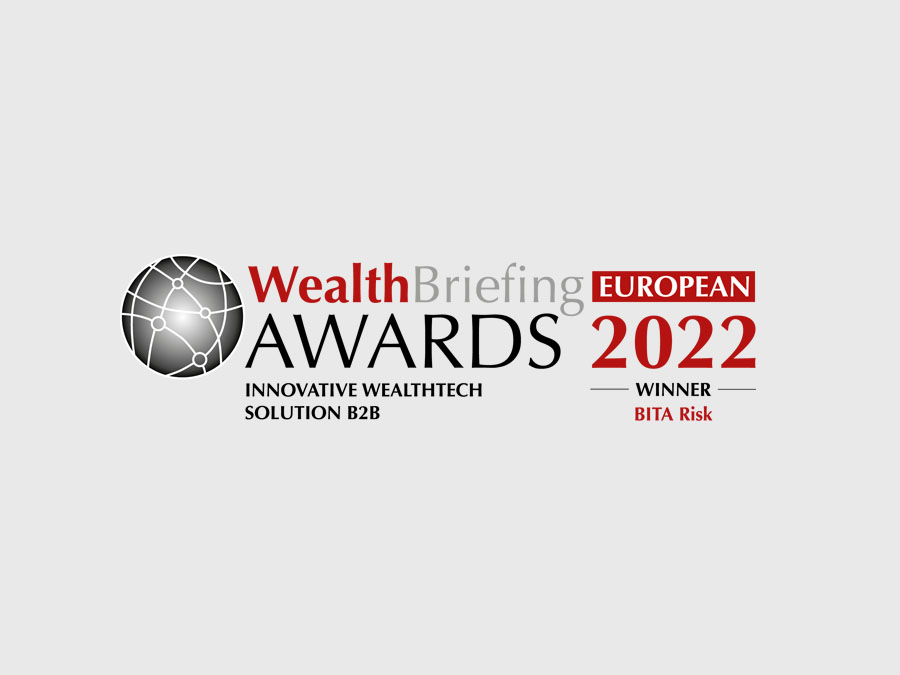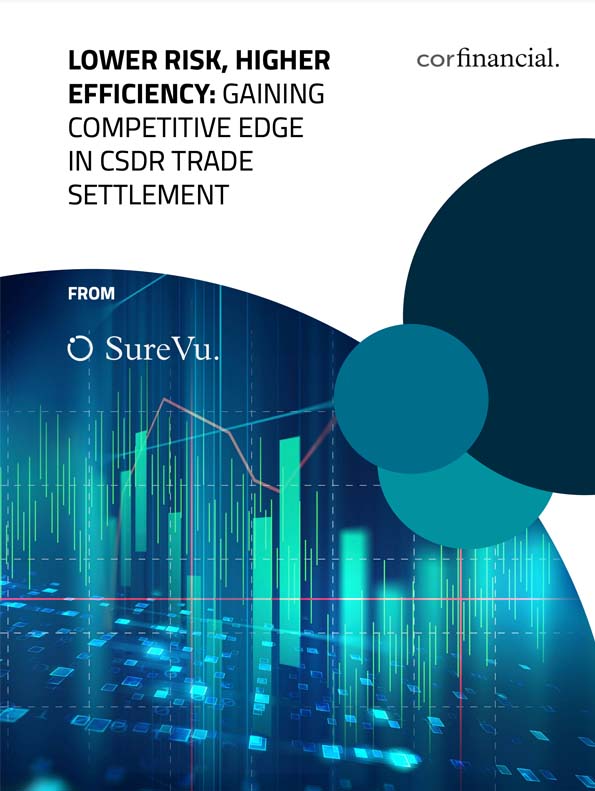 BITA Risk’s study this summer on the current challenges for wealth managers in portfolio governance and management has revealed five key areas requiring action: TCFD, ESG, Consumer Duty, Central Investment Plans and Risk.
BITA Risk’s study this summer on the current challenges for wealth managers in portfolio governance and management has revealed five key areas requiring action: TCFD, ESG, Consumer Duty, Central Investment Plans and Risk.
In a series of short reviews, we look at ESG to understand what it really means, and the key challenges firms are facing in delivering appropriate solutions.
So, what is meant by ‘ESG’ and what does it mean to any individual client? In discussions with investment managers, heads of sustainability and clients, it has become clear that both firms and clients view it in many different ways. For simplicity, I include Environmental, Social and Governance factors, climate and carbon factors, impact and green exposure, and then ethical restrictions (from simple issues like alcohol and tobacco through to complex research and armaments definitions) within the ESG umbrella.
Missing either restrictions or expectations can prove costly, so the definition and agreement process is key.
With this inherent complexity, how can and should client requirements be recorded, or even discussed with them? Given that this sets the foundation, it is an element of the process that must be clearly defined and understood.
There is more to this than seeing if a client gives to charity: that implies ESG investing is a charitable cause, and it’s not, it’s a thematic approach to investing that meets the dual utilities of seeking return and something that will give the investor additional utility or not give them disutility relating to ESG. These additional utilities can be very specific.
Clients mostly will have general requirements: “greener than it is now or compared to the benchmark” , “but I don’t want any GM foods or animal testing”. Here communication of the firm’s approach is key. This must explain that the perfect company does not exist, that trade-offs have to be made, and that zero tolerance can be highly constraining. So, the client needs to understand what is possible within a firm’s investment approach and what is not. This is easier with segregated portfolios but a minefield with funds.
If the client has specific requirements or a passion in a specific area, they may have more knowledge in the area than their manager and this has resulted in the rise of specialist teams that can discuss the requirements with the client. Firms need to consider how they establish or access such specialist knowledge, and also how this information is then incorporated into investment management and delivered to the IM desktop and client reports.
The most common approaches we see to sustainable preferences are, a percentage in ESG focussed investments, adherence to ESG focused buy-lists and ESG embedded in the central investment process and bespoke requirements. However, even with the more generic approaches of suitability driven buy-lists, client specific ethical restrictions and positive screening and negative screening preferences are often offered. Two things to consider: clearly state to the client the ESG parameters of their service and provide the manager with tools to identify assets that may fall short of expectations and then have a defined process of identifying, communicating, and managing these exceptions.
What is clear is that you cannot offer the client the option to select from some three thousand metrics to establish their sustainable goals. A set of thematic approaches with the question as to whether the client has specific requirements is more feasible. The client’s requirements can then be recorded in the context of the firm’s service and played back to them. This may well mean splitting requirements into different groups with different granularity – e.g., overall portfolio A+, good board diversification, no civilian armament production or distribution for direct investments and ensuring that funds bought have above average scores in these areas.
This requires the client manager to have access to an easy but structured way of recording these preferences and playing them back to the client. That is giving the client freedom within the firm’s ESG framework. The framework should be comprehensive enough to cover complex clients, as well as addressing the more generic needs of the body of the client base.
Once this structured definition of requirements is in place, checking, reporting, monitoring, managing, and governance become possible.
The challenge then becomes continually ensuring that the requirements are met. Monitoring a portfolio against preferences and restriction is key and avoids costly oversights. While a stock or fund may have been OK at purchase, its characteristics may have changed, the client preferences may have changed, and it needs to be considered in the context of the portfolio. Our approach enables firms to monitor positions automatically at three levels – client preference, firm’s sustainable buy-list(s) and policies, and portfolio metrics, with daily alerts for outlier positions. This gives peace of mind and avoids laborious manual checks and the risks of breaching mandate.
Always think about the thin red line – the small percentage of investments that score badly for one or more factors. Is the manager aware and would it be an issue for the portfolio or the client?
Many firms have invested in sustainability research and the development of focused investment offerings. We have found that most then struggle to demonstrate this process to clients, especially in the context of their individual requirements and portfolio. Where this can be done, it usually involves many manual processes and is limited to a single data vendor’s analysis.
By combining sources of ESG (remembering the broad definition at the beginning) with positions and preferences for all client portfolios, BITA Wealth delivers a clear report, showing what your process means to them. This narrative demonstrates value add and your investment process. Over 60% of firms spoken to have a Stewardship process in place, but none could demonstrate this. We are in the process of incorporating this data in client reports so that proactive effort is demonstrated and appreciated.
Often the comment is heard that the “data is not good enough” or there are gaps. It is research data in many cases and that is only as good as the process and the same due diligence should be undertaken as with any research data. Handling the gaps and making clear limitations is explicit in TCFD, and we have followed the same approach in ESG. Knowing the gaps can enable a firm to press vendors and funds to improve their coverage.
Many firms we speak to provide their own overlay on vendor data and firm specific commentaries. Making this data integral as part of the preference, management, monitoring, and reporting cycle delivers significant benefit to the firm and client alike.
Structured integrated data delivers a powerful insight into portfolios and delivers sustainable investing across a firm in line with its overall investment and governance processes, improving the investment narrative for the client and ensuring compliance with objectives.
As leaders in portfolio monitoring and governance, BITA Risk analyses circa £180bn of wealth management assets every night, for a range of wealth management firms. Fast analysis and aggregation of data, with seamless and efficient workflows for governance and client managers alike is at our core. We have extended our solutions to deliver what is needed now for sustainable and ESG-focused portfolios, together with significant added benefits for the firm, integrating with key data vendors and then adding analysis and client facing interpretations.
If you would like to discuss any of the points raised here, please contact us at BITARisk@corfinancialgroup.com or see more information on our solution here.
In the next two reviews we will look at the monitoring of Consumer Duty and then Central Investment Propositions. Sign-up here to receive these directly.
Daryl Roxburgh – President & Global Head BITA Risk® part of the corfinancial® Group


